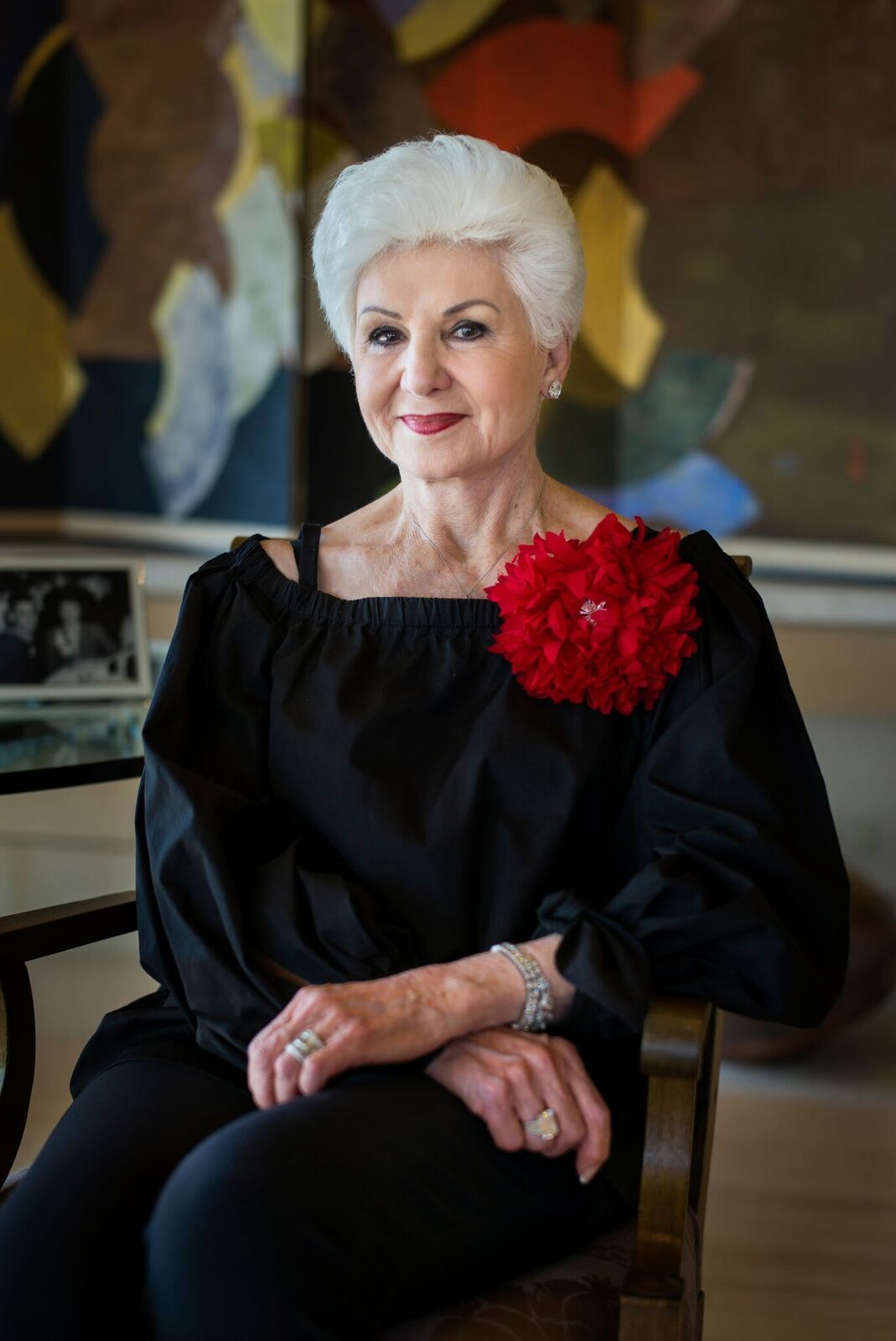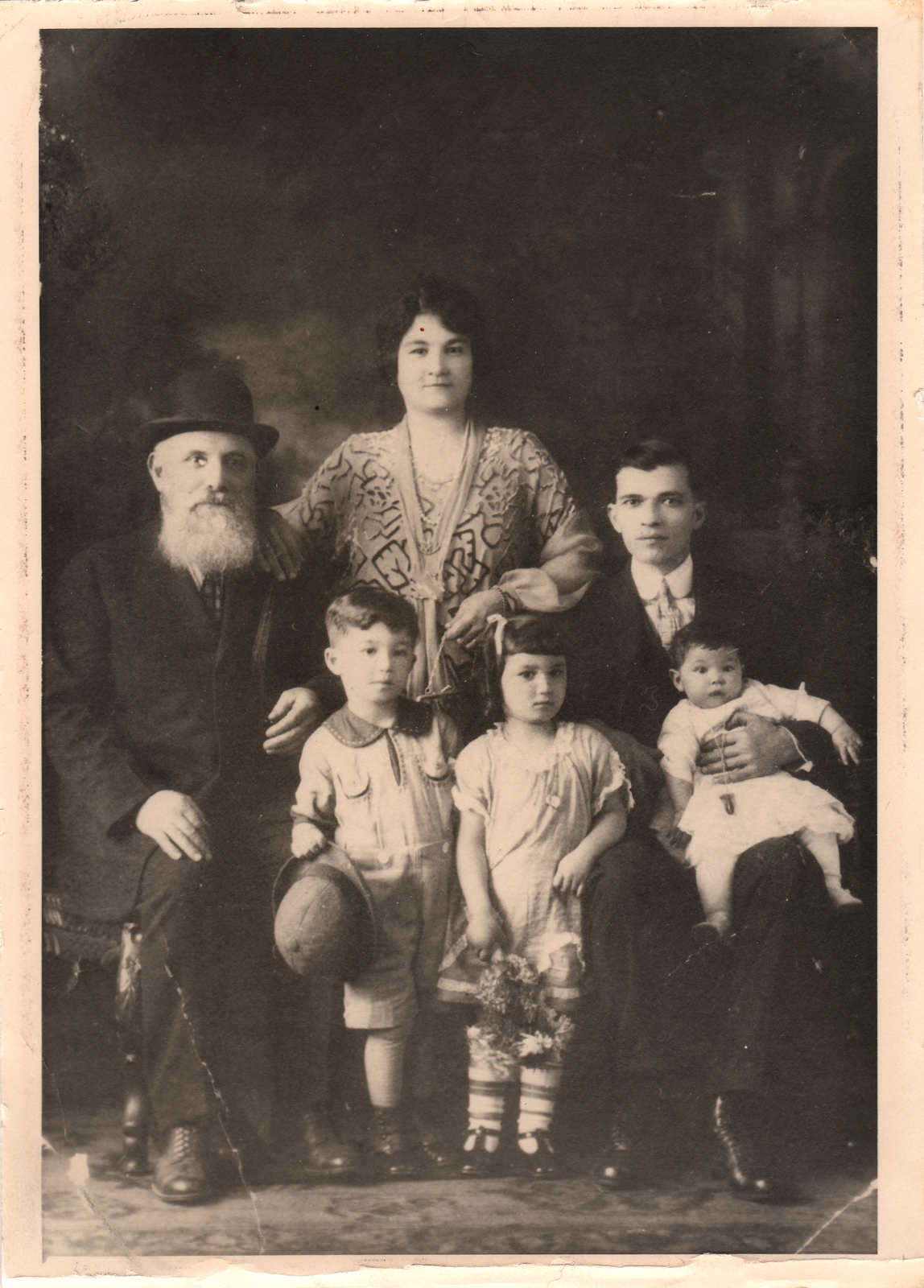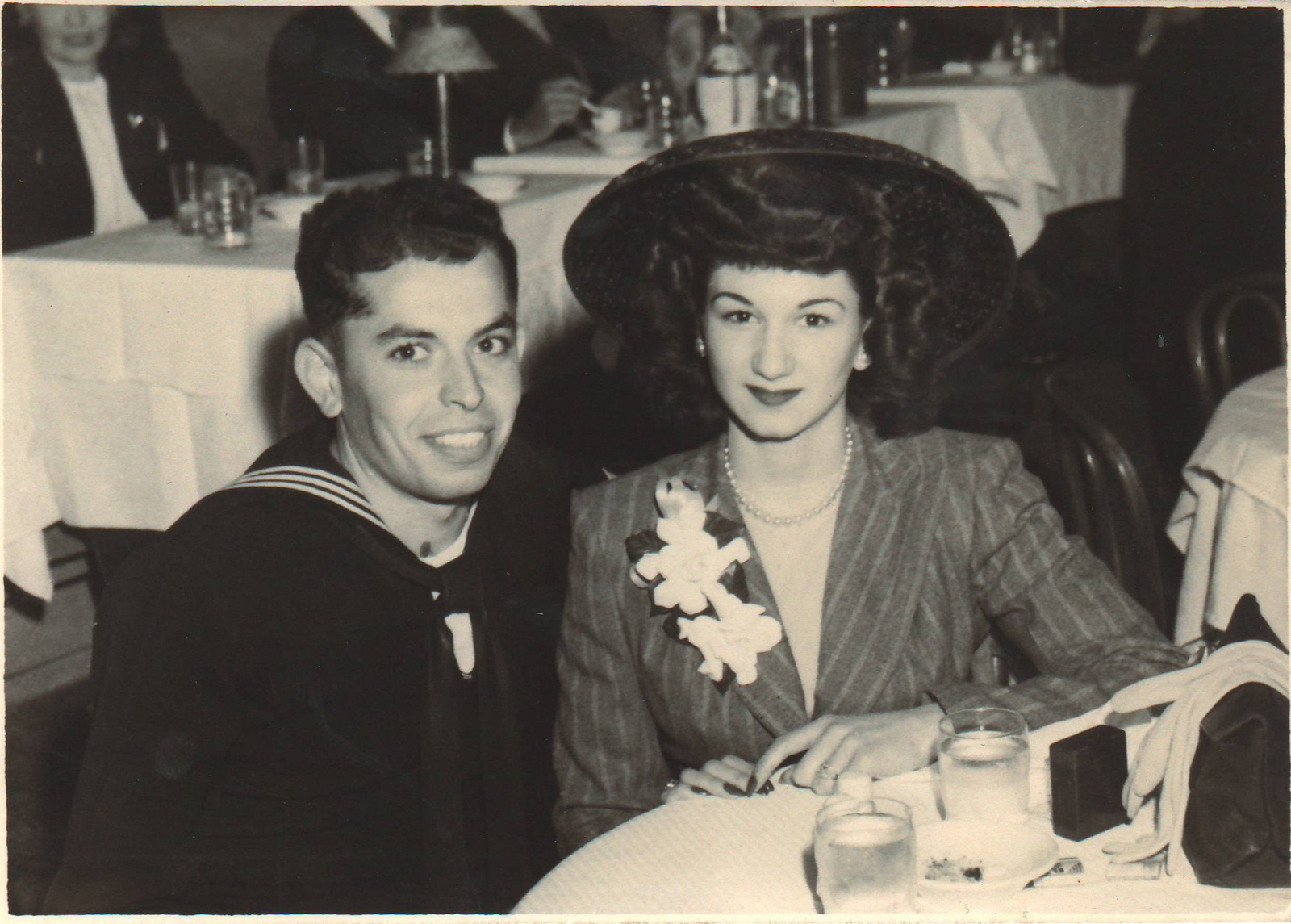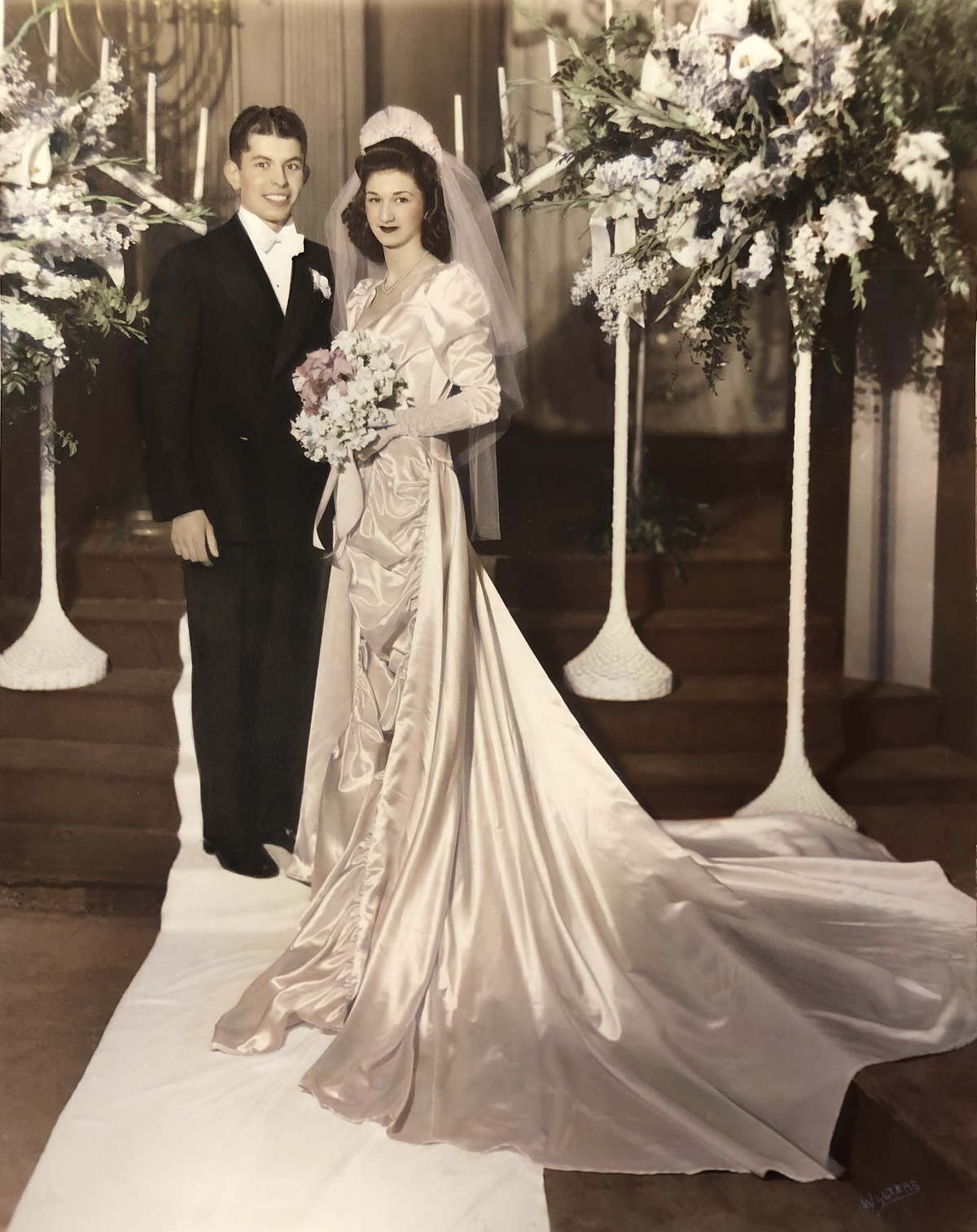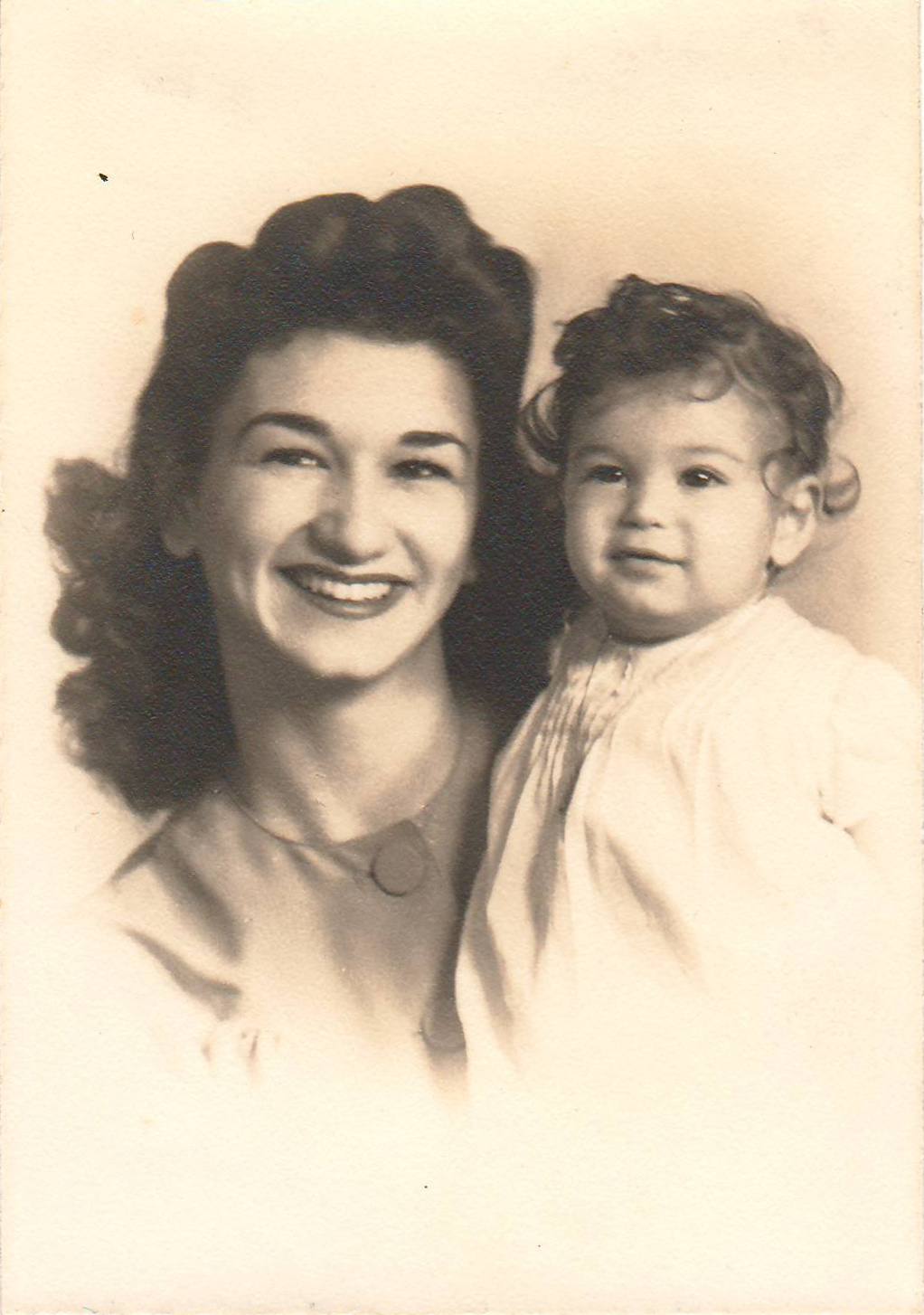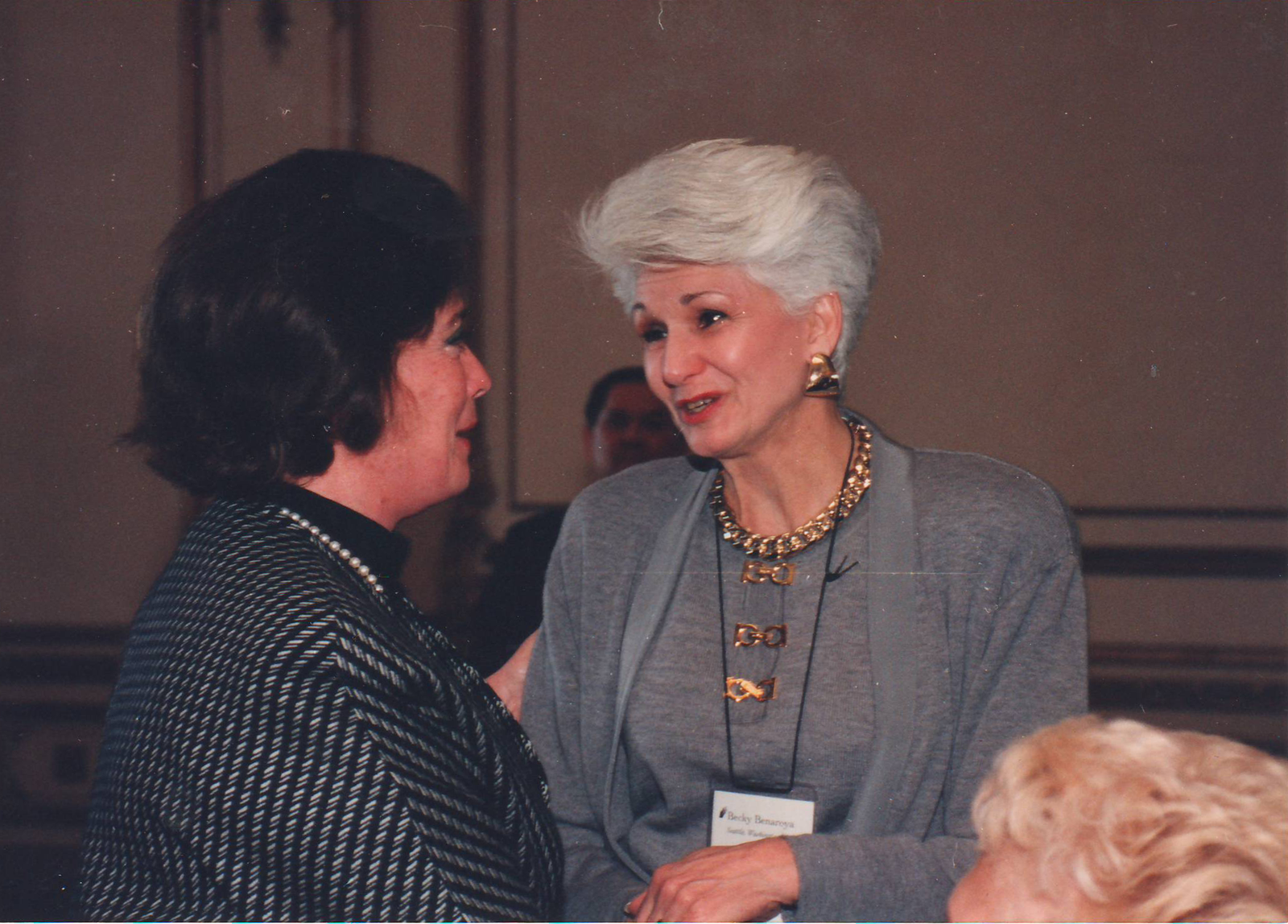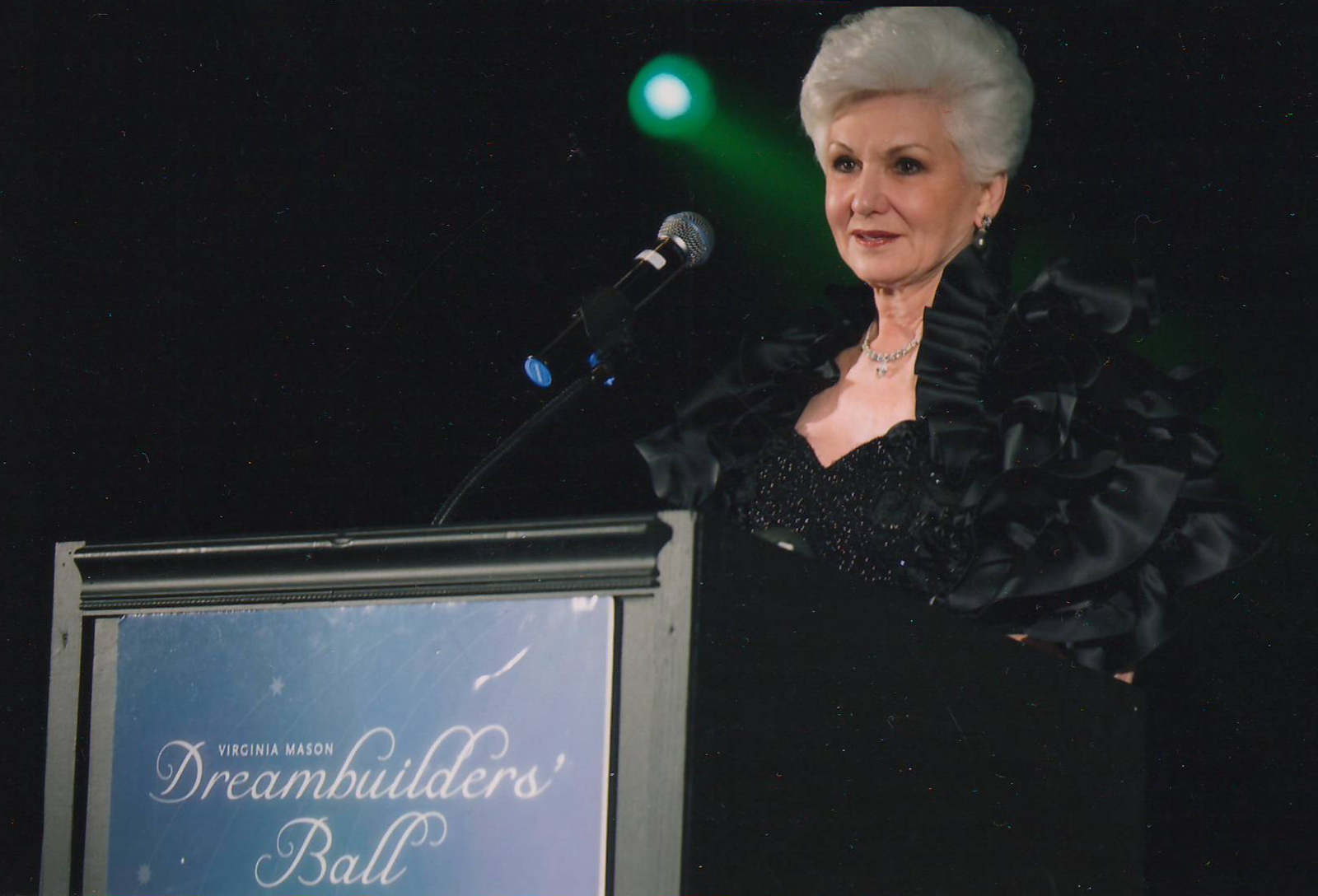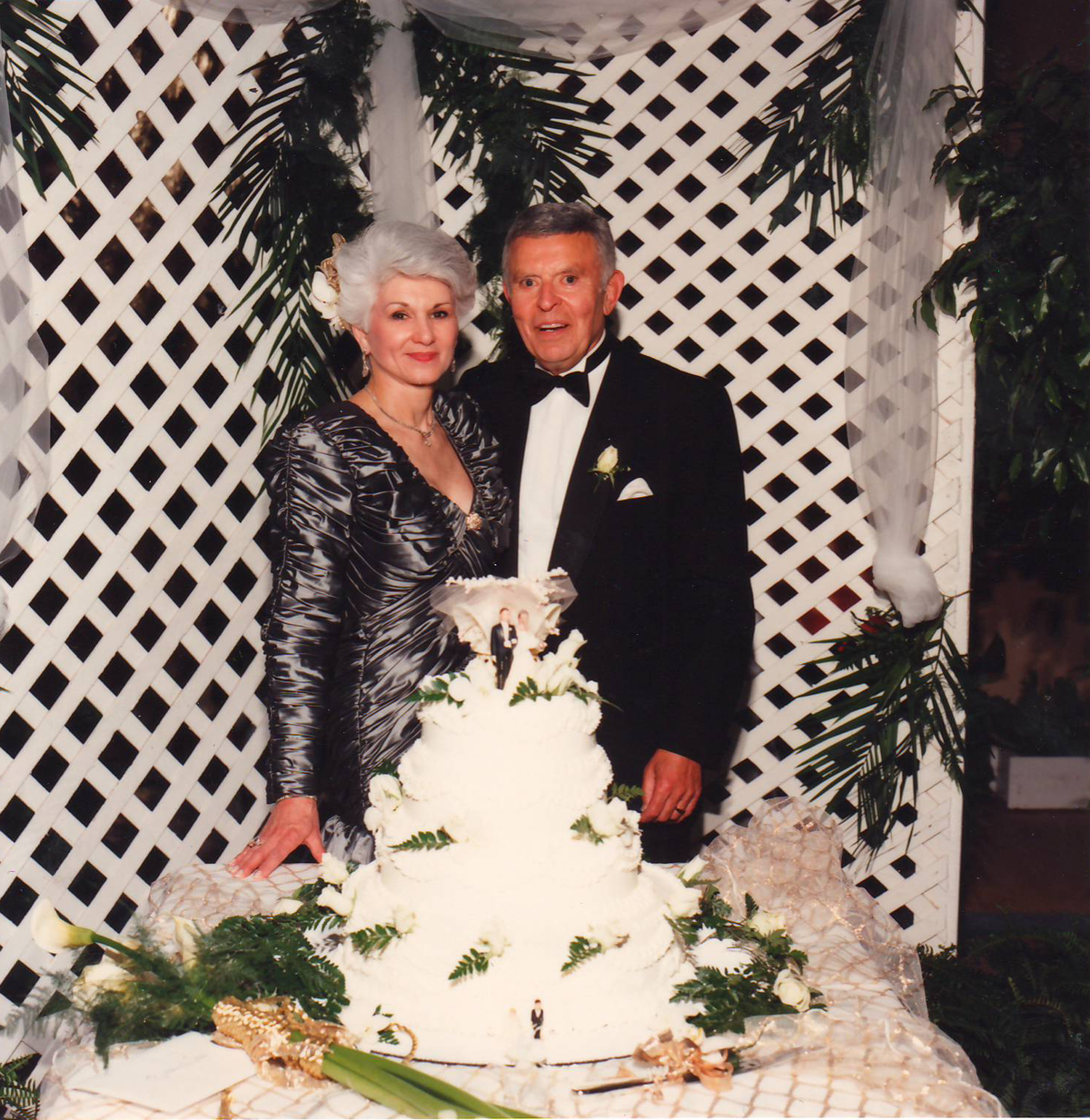I’m not sure when my mother’s family came to the U.S. It was during World War I; two of their three sons were already inducted. They didn’t want to lose their boys, so they made a quick decision to come to America. The boys changed their uniforms into civilian clothes on the train coming to Seattle, where my grandfather had a sister and brother-in-law already established. I would say they arrived in about 1918. My father arrived in Seattle a year before my mother’s family. My father was born on the Island of Rhodes, and my mother’s family came from Turkey. They were introduced by my father’s friend who was my mother’s neighbor. They were married shortly after they met, in 1920. When my father came over, he did not know the language, so he shined shoes at the Public Market. Then he worked for a family in the produce business, the Hannan family, and from there he started his own produce business. When Prohibition ended, he opened a tavern in the same location where he had his business. That property was part of a hotel and he ended up buying that whole package. From there he went into real estate. It’s a typical immigrant story.
My grandfather was the most important person in my life when I was growing up. He came to our house every day and spent a lot of time with me. He taught me to read Hebrew, tie my shoes, ride my bike, roller-skate, make his Turkish coffee, fly a kite, and told me stories. While he was playing with me, he would interject some of his values: wealth was just a gift, you couldn’t take it with you. Live and let live. People judge you by the company you keep. The one that was most important of all was leaving a good name. Of course, he explained all this in a manner a five-year-old could understand. For example, if you pulled a hair out of your head, are you able to put it back? That is what would happen if you did something bad, you could never regain your good name. I still quote him to this day. My grandfather was in his early sixties when he passed. He did a lot of volunteering at the Sephardic Bikor Holim congregation. One morning, he tripped on one of the stairs and broke his ribs. While in the hospital, he developed pneumonia and died. There was no penicillin then. He was the biggest influence in my life, and I still miss him.
We were high school sweethearts. We both went to Garfield. My mother didn’t want me going out with a lot of boys. I was sixteen and I had a lot of dates. My mother and father didn’t think it was proper to be dating so many boys, because it was going to ruin my reputation. She said, “You can only go out with one fellow.” Jack was a very serious and responsible young man, so I chose him. And my mother didn’t quit there. She said to Jack, “Are you taking my daughter’s time, or are you serious?” I thought he was going to run a mile a minute, but he said he was serious, and that was that. It was years later when I realized Jack never proposed. My granddaughter gave me a grandmother’s book to fill out – “How did you meet grandpa? How did he propose?” – asking questions like that. I realized he never did propose, it was my mother! Imagine that happening today!
We were going together for two and a half years before we got married. I wore his bar mitzvah ring when we were going steady. He had an older sister who wasn’t married, and we couldn’t get married until she did. We listened to our parents in those days. So, after Rose got married, I got my official engagement ring. We were to be married on my nineteenth birthday, but war broke out December 7th, and my birthday was January 14th. My mother said, “Nobody is getting married right now. We’ll see what’s going to take place.” But she couldn’t stand two crybabies, so she gave us her blessings and we got married a month later, February 14th. Valentines Day. I was nineteen and Jack was twenty-and-a-half. He went into the Navy five months after we were married. He served time in Philippines. Luckily, he came back alive.
It was awful. We were together in Pasco, WA for two years, and I worried every day that they would ship him out. Eventually he was sent to the Philippines, and I moved back to Seattle. By then, we had a two-year-old daughter. The war was over eight months later, and Jack had priority, because he had a wife and daughter, so he was one of the first to be sent home.
It was hard to understand the Holocaust at the time. We were young, and it was so far from home. I just couldn’t relate. The only way I related was when Ralph Capeloti brought his three sisters to Seattle. That’s when I realized how real it was. Up until then it was like I wasn’t involved. It was not a very good reaction, but I have to admit that I didn’t feel involved. It was far away. It is still hard to believe nobody did anything about it. Awful, and even more frightening when there is denial about it happening.
We went back to the Island of Rhodes, Turkey, and Israel, where my husband has family. Jack’s father was the only one who immigrated to this country. The rest of his family were from Bulgaria, and they all moved to Israel. My father-in-law’s parents, sister, and three brothers all moved to Israel. I felt a strong connection to the places when we went back; I tried to picture my parents walking those streets. I didn’t see the actual places that they lived – we were told that it was demolished during the war. That was the information we were given. But my daughter went back with her children, and a neighbor of my mother’s who was also from the Isle of Rhodes, happened to be there. She took them to where my father lived. So they got to see the house, and they talked to the people who were now inhabiting the house. They told us how small it was. It was so tiny, and they had even added onto the house since the original site! So yes, they saw it, but I didn’t.
I was primarily a home maker. That was the culture. The husband supported the wife and the family. You’re not going to believe this, but my mother didn’t want the girls to go to college, because then you get too smart, you get too picky, and you end up not getting married. You’re supposed to be a subservient wife. My husband planned on going to college, but he didn’t go either. We were already together. His parents were separated. All his siblings were married, and he was going to be moving in with his brother. This is when he decided that he wanted to get married, so he could have his own home. That’s why we got married as young as we did. Nobody thought it would last. Not my parents, they didn’t think that way, but our friends said we would never last. But we had so much in common, and we were so young, we grew up together.
Jack worked for his brother in the beer distribution business. He designed a truck body that you could load with pallets. It was called the “Worksaver Body,” and he got a patent on it. We moved to Cleveland where the truck bodies were manufactured, and Jack was traveling all over the country, demonstrating and selling. I called that time in my life “my growing up years.” No family to tell us how to live our lives. It was sink or swim. We didn’t realize it at the time, but that was the best thing that ever happened to us. We were able to see the whole picture, and realized it wasn’t working out, working for his brother. So we went back to Seattle and he broke the news that he was leaving the beer business. And the rest is history.
Jack had a lot to prove, and he proved it in a big way. And you know, he was such an extraordinary man. The money that got him started in the real estate business was all borrowed money. But he still knew that he had to give to charity. How many people think like that? And people ask, how do you teach people? I don’t know how to teach people. You just feel like it’s the right thing to do, and you don’t live any differently. We both felt that way about giving. I’m just continuing his legacy.
Contributions to medicine and education
My grandson was diagnosed with juvenile diabetes at the age of five-and-a-half. He is now 37. My husband spent a lot of time researching where to invest the money, with who is doing the most research. That was the beginning of our medical contributions. Jack had Parkinson’s, and he supported the Michael J. Fox Foundation for Parkinson’s Research, because they were doing good work. We’ve given to a variety of organizations. We wanted to support students, too. Education is very important. Jack’s one regret was that he didn’t go to college. He felt that having a college degree was very important. He tried to make it possible to help underprivileged students. So far, we’ve put 25 Black male students through college, through the “College of Success” program. We’ve also supported fourteen students through the ARCS program (Achievements and Rewards for College Scientists) at the University of Washington, where they select the brightest students in the country and give them scholarships. It’s still an ongoing program. We started supporting them a good twenty years ago, maybe more.
We became art glass collectors, and Jack was more passionate about it than I was. I was on the Pilchuck Glass School Board, and he’d come with me to the meetings. He was just fascinated with the glassblowers. Once you know the artist, the piece becomes more personal. We have quite a substantial collection of art: paintings, ceramics, but mostly glass. Our collection is going to the Tacoma Art Museum, and we hope other people will enjoy it as much as we have.
We like music, we’ve been attending the symphony for many years. Jack was a businessman. He found that to get good people, you must give them a good home. That’s exactly how he worded it. We needed a Symphony Hall to keep the conductor. It was a business. Jack was very fond of Gerard Schwarz, the conductor at the time, and he knew he’d be drawn away to another symphony if he didn’t have a good Symphony Hall to work in. The building is beautiful. Jack was involved at every meeting. He wanted to make sure that everything is right. It was his idea to do the Aaron Copland quote on the north side of the wall – “So long as the human spirit thrives on this planet, music in some living form will accompany and sustain it and give it expressive meaning.” He wanted to beautify it with the Chihuly chandeliers. He wanted it to be perfect. Best of all, it is one of the top ten symphony halls in the world. Opening night was incredible. All rave reviews, reporters from all over the country, saying the acoustics were superb. I happened to be at the meeting when they were talking about spacing the seats. Jack said, “You know, each generation is getting taller. You have to plan ahead, you need bigger aisles, with more leg room.” He just thought of so many things. Everything had to be just right. He was also a very modest man. He didn’t want his name on the symphony hall. But he was talked into it. Jerry said, “Do you want someone else’s name on there?” That did it.
I am still involved with the Pilchuck Glass School Board. I’ve served with Kline Galland for over thirty years. I’ve also contributed to the Israeli studies program at the University of Washington, in hopes of combatting anti-Semitism. I volunteered with first and third graders at the Sunny Sands School in Cathedral City, in California, for twenty years. I still go back annually for their tea. I played tennis until I was 80; I still enjoy playing Bridge. I love to entertain, cook and bake. We did a lot of traveling. When we traveled, we’d always look for art. Having this wonderful connection that we both felt really brought us together. And giving has been such an important part of life. When you give, you really do feel good. By giving, you don't really live any differently.

